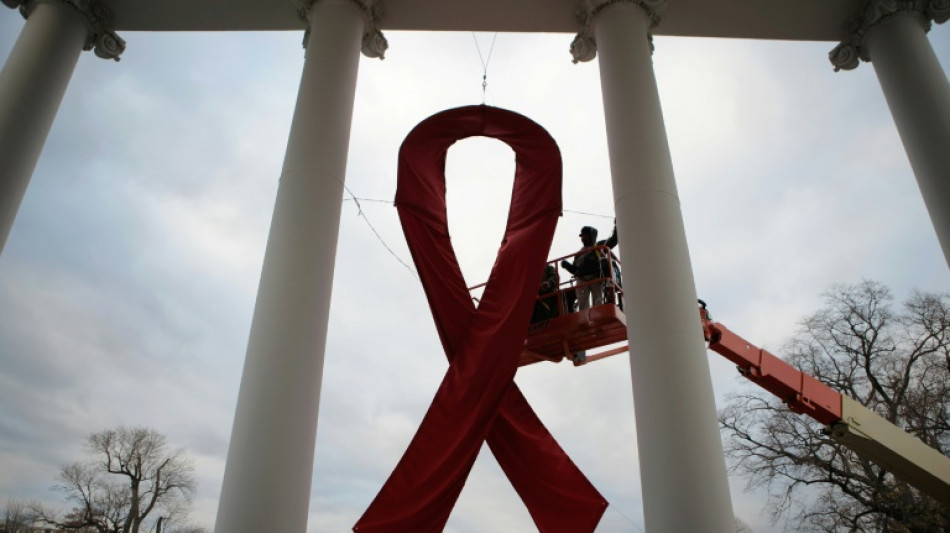
-
 Barca strengthen Liga lead at Villarreal, Atletico go third
Barca strengthen Liga lead at Villarreal, Atletico go third
-
Third 'Avatar' film soars to top in N. American box office debut

-
 Third day of Ukraine settlement talks to begin in Miami
Third day of Ukraine settlement talks to begin in Miami
-
Barcelona's Raphinha, Yamal strike in Villarreal win

-
 Macron, on UAE visit, announces new French aircraft carrier
Macron, on UAE visit, announces new French aircraft carrier
-
Barca's Raphinha, Yamal strike in Villarreal win

-
 Gunmen kill 9, wound 10 in South Africa bar attack
Gunmen kill 9, wound 10 in South Africa bar attack
-
Allegations of new cover-up over Epstein files

-
 Atletico go third with comfortable win at Girona
Atletico go third with comfortable win at Girona
-
Schwarz breaks World Cup duck with Alta Badia giant slalom victory

-
 Salah unaffected by Liverpool turmoil ahead of AFCON opener - Egypt coach
Salah unaffected by Liverpool turmoil ahead of AFCON opener - Egypt coach
-
Goggia eases her pain with World Cup super-G win as Vonn takes third

-
 Goggia wins World Cup super-G as Vonn takes third
Goggia wins World Cup super-G as Vonn takes third
-
Cambodia says Thai border clashes displace over half a million

-
 Kremlin denies three-way US-Ukraine-Russia talks in preparation
Kremlin denies three-way US-Ukraine-Russia talks in preparation
-
Williamson says 'series by series' call on New Zealand Test future

-
 Taiwan police rule out 'terrorism' in metro stabbing
Taiwan police rule out 'terrorism' in metro stabbing
-
Australia falls silent, lights candles for Bondi Beach shooting victims

-
 DR Congo's amputees bear scars of years of conflict
DR Congo's amputees bear scars of years of conflict
-
Venison butts beef off menus at UK venues

-
 Cummins, Lyon doubts for Melbourne after 'hugely satsfying' Ashes
Cummins, Lyon doubts for Melbourne after 'hugely satsfying' Ashes
-
'It sucks': Stokes vows England will bounce back after losing Ashes

-
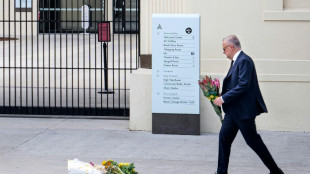 Australia probes security services after Bondi Beach attack
Australia probes security services after Bondi Beach attack
-
West Indies need 462 to win after Conway's historic century

-
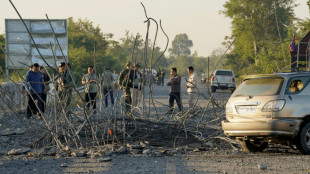 Thai border clashes displace over half a million in Cambodia
Thai border clashes displace over half a million in Cambodia
-
Australia beat England by 82 runs to win third Test and retain Ashes

-
 China's rare earths El Dorado gives strategic edge
China's rare earths El Dorado gives strategic edge
-
Japan footballer 'King Kazu' to play on at the age of 58
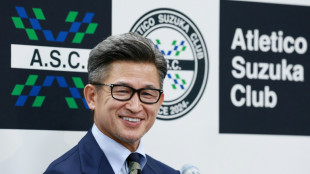
-
 New Zealand's Conway joins elite club with century, double ton in same Test
New Zealand's Conway joins elite club with century, double ton in same Test
-
Australian PM orders police, intelligence review after Bondi attack
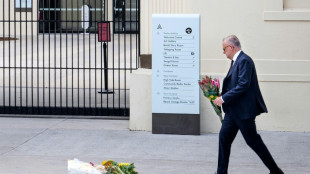
-
 Durant shines as Rockets avenge Nuggets loss
Durant shines as Rockets avenge Nuggets loss
-
Pressure on Morocco to deliver as Africa Cup of Nations kicks off

-
 Australia remove Smith as England still need 126 to keep Ashes alive
Australia remove Smith as England still need 126 to keep Ashes alive
-
Myanmar mystics divine future after ill-augured election
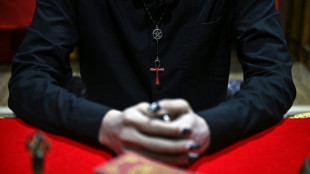
-
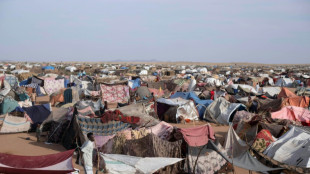 From the Andes to Darfur: Colombians lured to Sudan's killing fields
From the Andes to Darfur: Colombians lured to Sudan's killing fields
-
Eagles win division as Commanders clash descends into brawl

-
 US again seizes oil tanker off coast of Venezuela
US again seizes oil tanker off coast of Venezuela
-
New Zealand 35-0, lead by 190, after racing through West Indies tail

-
 How Can Gum Disease Lead to Tooth Loss in Kyle, TX?
How Can Gum Disease Lead to Tooth Loss in Kyle, TX?
-
West Indies 420 all out to trail New Zealand by 155

-
 Arteta tells leaders Arsenal to 'learn' while winning
Arteta tells leaders Arsenal to 'learn' while winning
-
Honour to match idol Ronaldo's Real Madrid calendar year goal record: Mbappe

-
 Dupont helps Toulouse bounce back in Top 14 after turbulent week
Dupont helps Toulouse bounce back in Top 14 after turbulent week
-
Mbappe matches Ronaldo record as Real Madrid beat Sevilla

-
 Gyokeres ends drought to gift Arsenal top spot for Christmas
Gyokeres ends drought to gift Arsenal top spot for Christmas
-
Arsenal stay top despite Man City win, Liverpool beat nine-man Spurs

-
 US intercepts oil tanker off coast of Venezuela
US intercepts oil tanker off coast of Venezuela
-
PSG cruise past fifth-tier Fontenay in French Cup

-
 Isak injury leaves Slot counting cost of Liverpool win at Spurs
Isak injury leaves Slot counting cost of Liverpool win at Spurs
-
Juve beat Roma to close in on Serie A leaders Inter


'Geneva patient' the latest in long-term remission from HIV
A man dubbed the "Geneva patient" is the latest person with HIV to be declared in long-term remission -- however he did not receive a transplant with a virus-blocking gene mutation like previous cases, researchers said Thursday.
Five people have previously been considered "cured" of HIV: the Berlin, London, Duesseldorf, New York and City of Hope, California patients.
All had bone marrow transplants to treat serious cases of cancer, receiving stem cells from a donor with a mutation of the CCR5 gene. This mutation is known to block HIV from entering the body's cells.
In 2018, the Geneva patient similarly received a stem cell transplant to treat a particularly aggressive form of leukaemia.
But this time the transplant came from a donor who did not carry the CCR5 mutation, French and Swiss researchers told a press conference in the Australian city of Brisbane as part of an AIDS conference that begins at the weekend.
This means that the virus is still able to enter the patient's cells.
However, 20 months after the man stopped taking antiretroviral treatment -- which reduces the amount of HIV in the blood -- doctors at Geneva University Hospitals have not found a trace of the virus in his system, the researchers said.
While they cannot rule out that the man's HIV will return, the researchers said they consider him to be in long-term remission.
"What is happening to me is magnificent, magical," the Geneva patient said in a statement.
The patient, a white man who chose not to be named, was diagnosed with HIV in 1990.
He had been on antiretrovirals until November 2021, when his doctors advised him to stop taking the treatment after the bone marrow transplant.
- 'Promising' -
Two previous cases, known as the Boston patients, had also received normal or "wild type" stem cells during their transplants. But in both cases, HIV returned a few months after they stopped taking antiretrovirals.
Asier Saez-Cirion, a scientist at France's Pasteur Institute who presented the Geneva patient case in Brisbane, told AFP that if there was still no sign of the virus after 12 months "the probability that it will be undetectable in the future increases significantly".
There were a couple of possible explanations for why the Geneva patient remains HIV free, Saez-Cirion said.
"In this specific case, perhaps the transplant eliminated all the infected cells without the need for the famous mutation," he said.
"Or maybe his immunosuppressive treatment, which was required after the transplant, played a role."
Sharon Lewin, the president of the International AIDS Society holding the HIV science conference in Brisbane, said the case was "promising".
"But we learned from the Boston patients that even a single" particle of the virus can lead to HIV rebounding, she cautioned.
"This particular individual will need to be watched closely over the next months and years."
While these cases of long-term remission raise hopes that one day HIV can truly be cured, the brutal and risky bone marrow transplant procedure is not an option for the millions of people living with the virus around the world.
It is instead a last-ditch attempt to treat life-threatening cancer in people who also have HIV.
However, there are hopes that the remission cases could point towards new avenues of research, such as the potential role played by immunosuppressive treatments.
Saez-Cirion said the case had also encouraged the researchers to continue studying innate immune cells, which act as the first line of defence against various pathogens, and could help control the virus.
For his part, the Geneva patient said he was now "looking to the future".
M.A.Colin--AMWN



